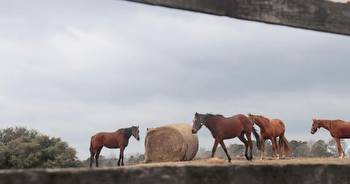Examining the Future of New Jersey's Thoroughbred and Standardbred Racing and Breeding

The future of New Jersey Thoroughbred and Standardbred racing and breeding was brought into focus earlier this year at the Rutgers Equine Science Center’s second New Jersey Equine Industry Summit.
The founding director, Dr. Karyn Malinowski, said the summit was “to set the course of the horse industry for decades to come” in much the same way the first summit did 20 years.
The event brought together equine leaders, professionals, veterinarians, educators, horse and farm owners, and enthusiasts throughout the tri-state area. The purpose was to discuss the strengths, weaknesses, opportunities, and challenges facing New Jersey’s equine industry going forward along with analyzing the results of the center’s 2022 equine needs assessment survey.
This summer, the equine center released the summit’s conclusions. Here are some of the report’s findings:
In 2004, New Jersey casinos provided $30 million a year to the horse-racing industry, divided equally among the Standardbreds and Thoroughbreds to offset the negative impact the casinos had on the horse racing industry. Then-Gov. Chris Christie ended the funding in 2011. Surrounding states had the benefit of additional funding through “racinos” (racetrack casinos) which were used to support and improve their racing programs. New Jersey, by law, is not allowed to have a casino within a 70-mile radius of Atlantic City, which rules out Monmouth Park and Freehold Raceway. A referendum would be needed to allow casinos at the racetracks.
In 2019, the state approved a five-year, $20 million per year appropriation to be divided equally between Standardbreds and Thoroughbreds. It allowed New Jersey to again become somewhat competitive with surrounding states. Lobbying efforts are already underway for another five-year appropriation of $100 million beginning in 2024.
To sustain the future of the racing industry, New Jersey must consider other forms of wagering along with state funding. These include fixed-odds and historic wagering. The former has already been approved at Monmouth Park, but there is still no agreement reached with the company providing the service. While historic wagering has proved very popular in Kentucky, it is considered a slot machine. In New Jersey, slots are only permitted at Atlantic City casinos.
Horse racing faces certain negative public perceptions of the industry. Opportunities to change this perception include:
• Eliminating workforce/labor issues.
• Increasing education and awareness.
• Creating family-friendly events in family-friendly surroundings and attracting young people to the sport.
• Increasing the variety and accessibility of betting opportunities.
• Advocating for continued state funding.
In 2002, there were 1,329 Thoroughbred races run in the Garden State, with purses totaling $39 million, with an average purse of $29,213. In 2022, there were only 656 races. However, purses totaled $33 million with an average purse of $50,158. While races run was nearly cut in half, overall purses did not decline significantly, and the average purse also nearly doubled.
Mike Tanner, executive vice president of the U.S. Trotting Association, reported that New Jersey’s harness-racing purses lag behind several other states but the number is “deceptive” because every state ahead of New Jersey has the benefit of slot-infused funding.
“Look at how this has played out over the last 20 years: races, purses, starters, starts, race cards, and race days are all down as compared to 20 years ago. Purses are up moderately. Field size has remained constant. The good news is that —nationally, at least — foal crops have experienced year-over-year gains, however incremental, for the past six seasons,” said Tanner.
As members and leaders of the state’s equine industry are beginning to retire, the state will need young people to take their place.
Taylor Ross, Ph.D., a teaching instructor in the Rutgers’ Department of Animal Sciences, and Brittany Rigg, the senior 4-H program coordinator, Rutgers Cooperative Extension, identified several trends and offered recommendations to sustain youth involvement, particularly through 4-H, and including offering scholarships and creating a statewide young professionals’ organization.




































